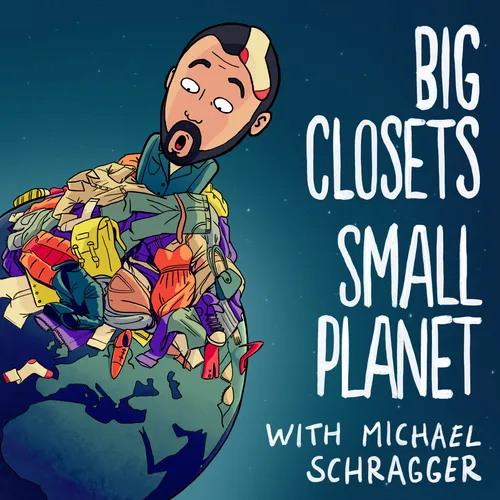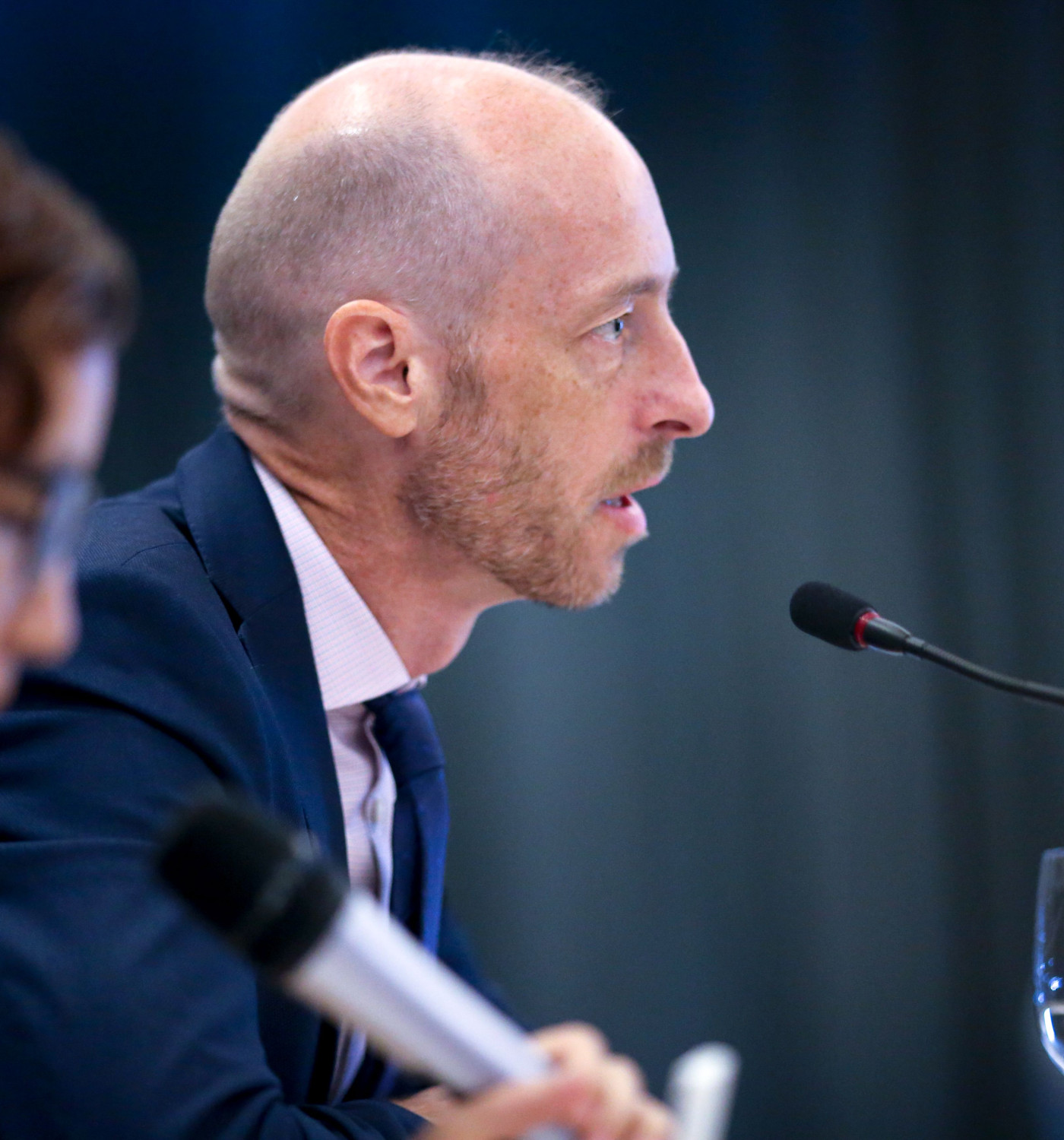
Big Closets Small Planet
Fashion and apparel. It touches nearly everyone. When its at its best, fashion and apparel is not only functional, but also fun, expressive, sexy, and for some businesses, very profitable. But when it is at its worst, fashion and apparel is superficial, exploitative, polluting and extremely wasteful - in other words the essence of unsustainable consumption. And while it is argued that the industry's rapid growth has created employment opportunities for more than 300 million people worldwide, especially for women in poorer countries and those in extreme poverty, many garment workers still struggle to earn enough to pay to meet even their most basic needs. More alarming is the fact that as the industry grows - by 2030 more than 8 billion people will live on the planet, and nearly 5 billion of these will be part of the global middle class - its negative environmental impacts may become unmanageable, potentially undermining its social benefits and contributing to ecosystem degradation on local, regional and global scales.
Who would have thought garments could be so destructive?
The fashion industry must change now, but will we manage in time? Join Mike Schragger, founder of the Sustainable Fashion Academy, as he explores the challenges, incentives and disincentives and emerging solutions needed to rapidly transform the industry. Listen in as he talks with the business leaders, activists, researchers, innovators and entrepreneurs, investors, legislators, consumers and citizens - who are racing against the clock to find solutions that will transform the industry, thus ensuring it truly operates for the benefit of people and the planet.
www.sustainablefashionacademy.org/podcasts/big-closets-small-planet
- Update frequency
- every 8 days
- Average duration
- 45 minutes
- Episodes
- 58
- Years Active
- 2018 - 2025

CLIMATE ACTION WEEK: Do we need to reimagine growth in apparel? Textile Exchange makes the case.
A few years ago Professor Jason Hickel was invited to speak during an annual Textile Exchange conference. Why was that invitation noteworthy? Because Jason is an advocate for degrowth in fashion. Fas…

CLIMATE ACTION WEEK: Ken Pucker is a thought leader and an independent voice. Is anyone listening?
Ken Pucker, former COO at Timberland and now Professor of Practice at Tufts University, sustainable industry analyst, opinion columnist and critic, views himself as a completely independent voice whe…

CLIMATE ACTION WEEK: How much is enough? Can a “sufficiency” approach be applied to textile policy?
The idea that the fashion and apparel industry can continue to grow by employing a green-growth model has been questioned by many leading thinkers. It is argued that for the industry to reduce its em…

CLIMATE ACTION WEEK: How Elisabeth Peregi, the Kappahl Group’s CEO, views climate action.
The Kappahl Group is a signatory in STICA’s Company Climate Action Program. That is why we invited Elisabeth Peregi, CEO of the Kappahl Group, for a conversation about how a CEO from a midsized, priv…

CLIMATE ACTION WEEK: Status Update: Will the New York and California Fashion Act bills pass?
During STICA’s 2024 Climate Action Week, Maxine Bédat and her colleagues from the NRDC and the New York State Assembly updated us on the arguments for and status of the New York Fashion Act. Since th…

CLIMATE ACTION WEEK: Will EU’s textile legislation reduce industry emissions at the pace and scale required?
According to a recent report by the European Environment Agency, the greenhouse gas emissions from textile consumption in the EU was 355kg CO2e per person (based on 2022 data). So how does the EU Com…

CLIMATE ACTION WEEK: Watchdogs Action Speaks Louder & Fashion Revolution want more from the industry.
During the past few years, a number of NGO campaign organizations, sometimes referred to as watchdogs, have set their sights on accelerating climate action in the apparel industry. Michael sat down R…

CLIMATE ACTION WEEK: Heat is putting Indian garment workers’ lives at risk today. We need to act now.
Nandita Shivakumar is a labor organizer and campaigner whose work has focused on gender justice, sustainability, and migrant rights in global fashion supply chains. She also represents the Tamil Nadu…

CLIMATE ACTION WEEK: Professor Hakan Karaosman is still asking: “Where are the workers’ voices?”
Hakan Karaosman, whose mother was a garment worker, is a Professor in supply chain management from Cardiff University. Six years ago, Hakan and his colleagues asked “Where are the workers' voices in …

CLIMATE ACTION WEEK: The Laudes Foundation explains its approach for ensuring a Just Transition.
The Laudes Foundation is one of the few philanthropic organizations that funds sustainability initiatives that specifically impact the apparel industry. The Foundation is also actively promoting the …

CLIMATE ACTION WEEK: Jason Judd wants the apparel industry to take heat stress very seriously.
Already today global warming is having an impact on companies, workers and communities in countries where a majority of global production currently takes place. In particular, heat stress is increasi…

CLIMATE ACTION WEEK: Apparel Impact Institute has a decarbonization strategy for the industry. Is it working?
The Apparel Impact Institute (Aii) has become a central player in setting and implementing the apparel industry’s decarbonization agenda. To achieve this, Aii conducts industry analysis, sets industr…

CLIMATE ACTION WEEK: Will climate-related innovations save us? We asked Lutz Walter from Textile ETP.
Lutz Walter founded and leads the European Technology Platform for the Future of Textiles and Clothing (Textile ETP), a network of research and technology experts from the textile sector, including r…

CLIMATE ACTION WEEK: WRAP believes we need a standardized way to measure circular business models.
To reach their greenhouse gas emissions reduction targets and to transform their businesses, companies are hoping they can increasingly replace revenues from their current business models with revenu…

CLIMATE ACTION WEEK: The Good Fashion Fund has tested its impact model. It is time to scale up.
The Good Fashion Fund (GFF) was launched in 2018 to demonstrate that an impact fund that supports textile suppliers in their sustainability journey, especially midsize manufacturers operating in tier…

CLIMATE ACTION WEEK: Will we soon see a breakthrough for “next-gen” man-made cellulosic textiles?
Nicole Rycroft from Canopy believes “next-gen” materials are to forests and climate as renewables are to fossil fuels and climate. Her organization’s strategy is to remove the incentive to cut down f…

CLIMATE ACTION WEEK: Will H&M reach its climate targets and decouple emissions from financial growth?
The H&M Group, a STICA signatory, is by far the largest emitter of greenhouse gases among those companies participating in STICA’s Company Climate Action Program. From a sustainability perspective, H…

CLIMATE ACTION WEEK: These manufacturers argue a paradigm shift is needed for successful climate action.
In on-going discussions about who is responsible for bearing the cost of sustainability investments in the supply chain, one issue emerges repeatedly: that there are power imbalances between buyers a…

CLIMATE ACTION WEEK: Will energy benchmarks for apparel change the game? Kurt & Phil think so.
Experts working with the Apparel Impact Institute are developing the first quantitative performance evaluation benchmarks for apparel and textiles in order to clearly compare the performance of one f…

CLIMATE ACTION WEEK: Factory decarbonization expert Peter Ford is surprisingly optimistic about 2030.
We wanted a broader perspective on the state of decarbonization in apparel supply chains from a practitioner who is working actively in this field. So we turned to Peter Ford. Peter spent the past si…